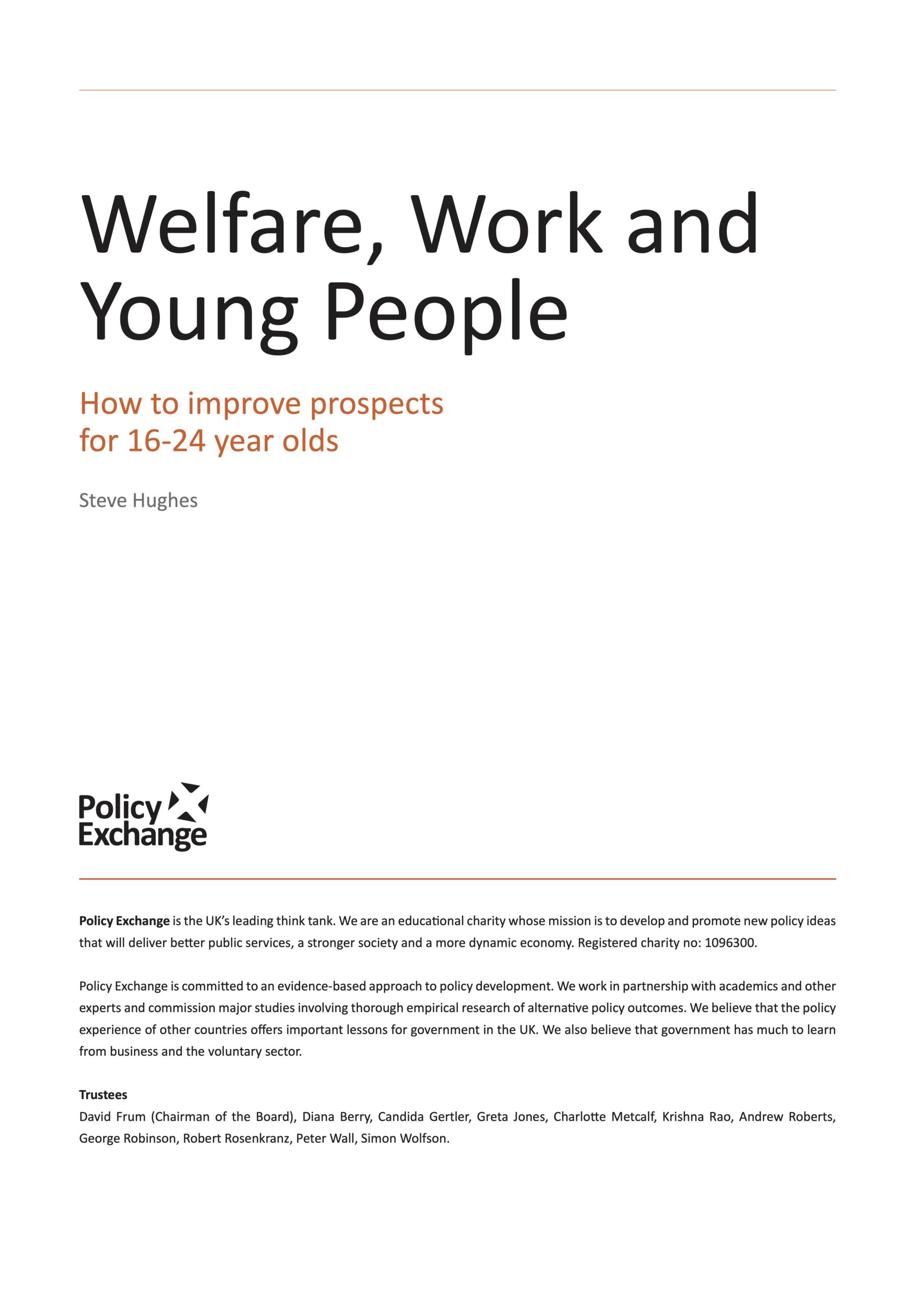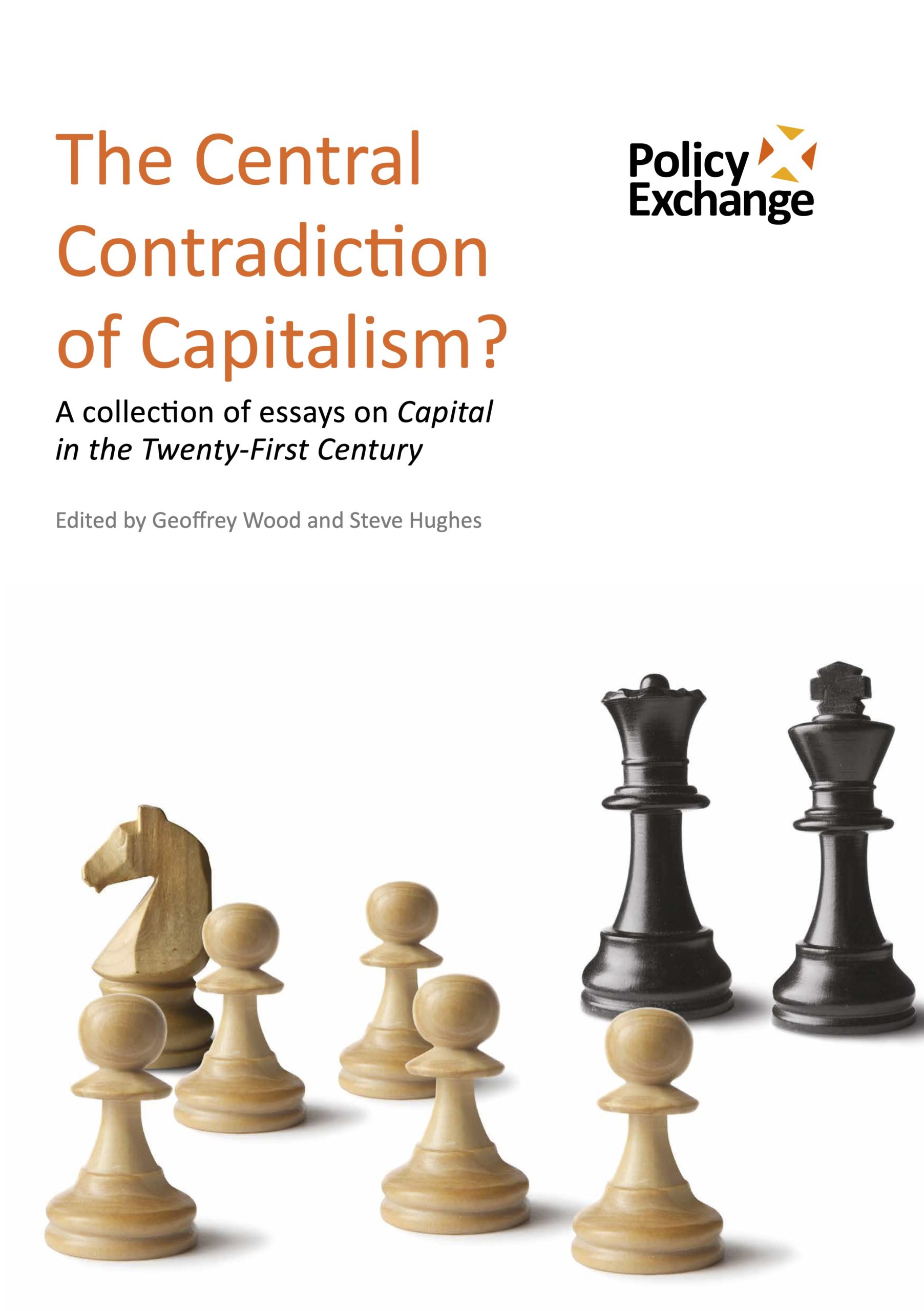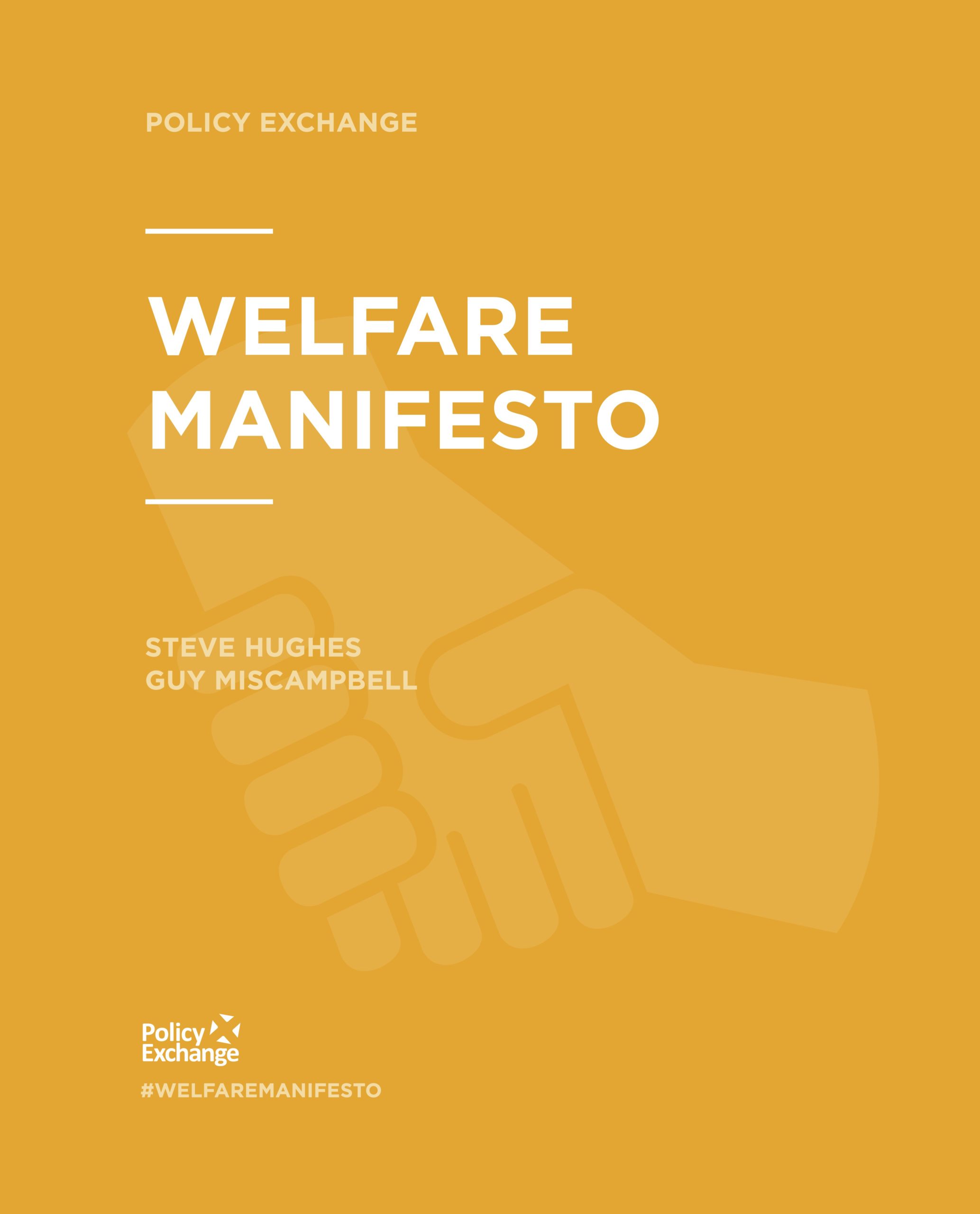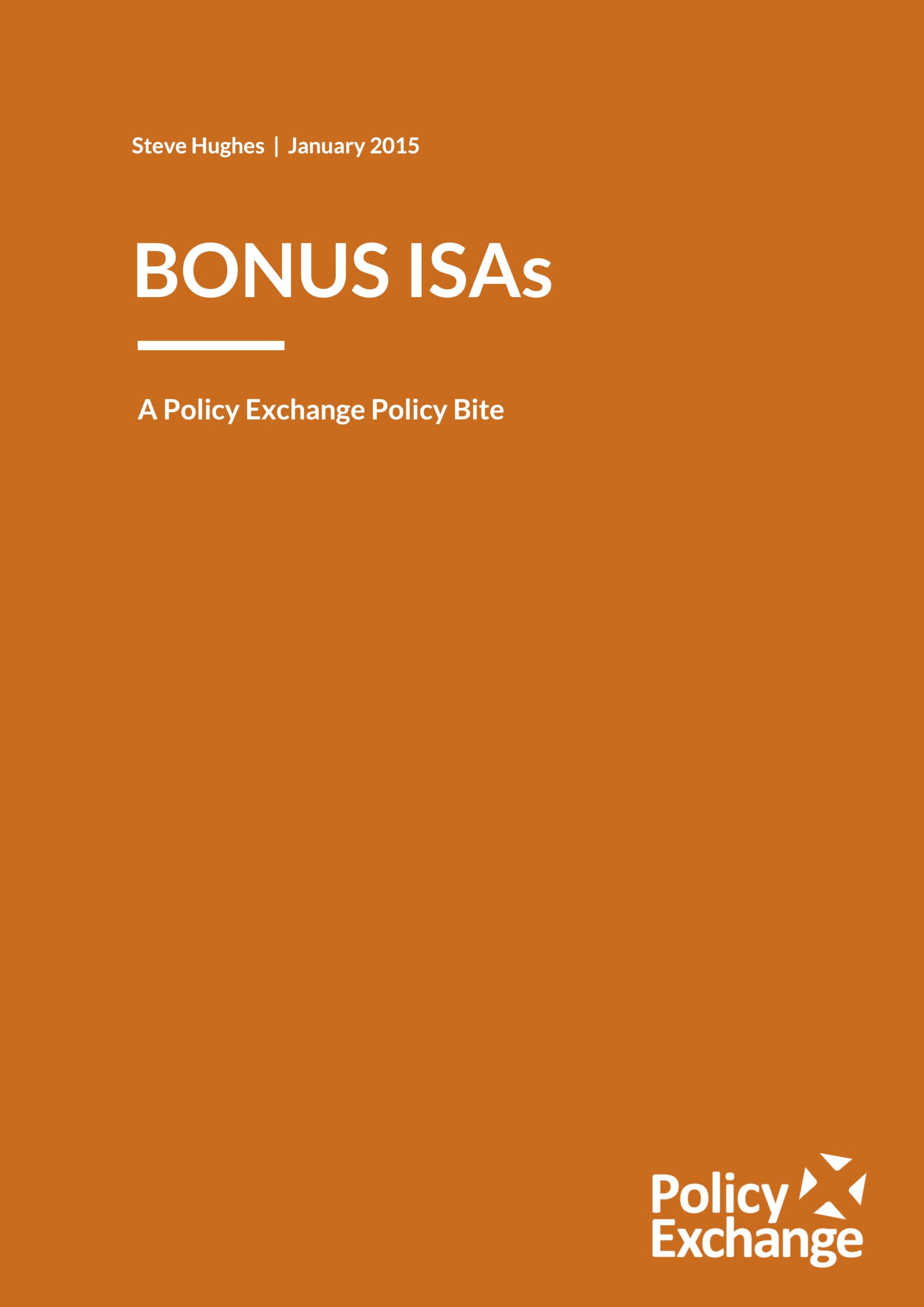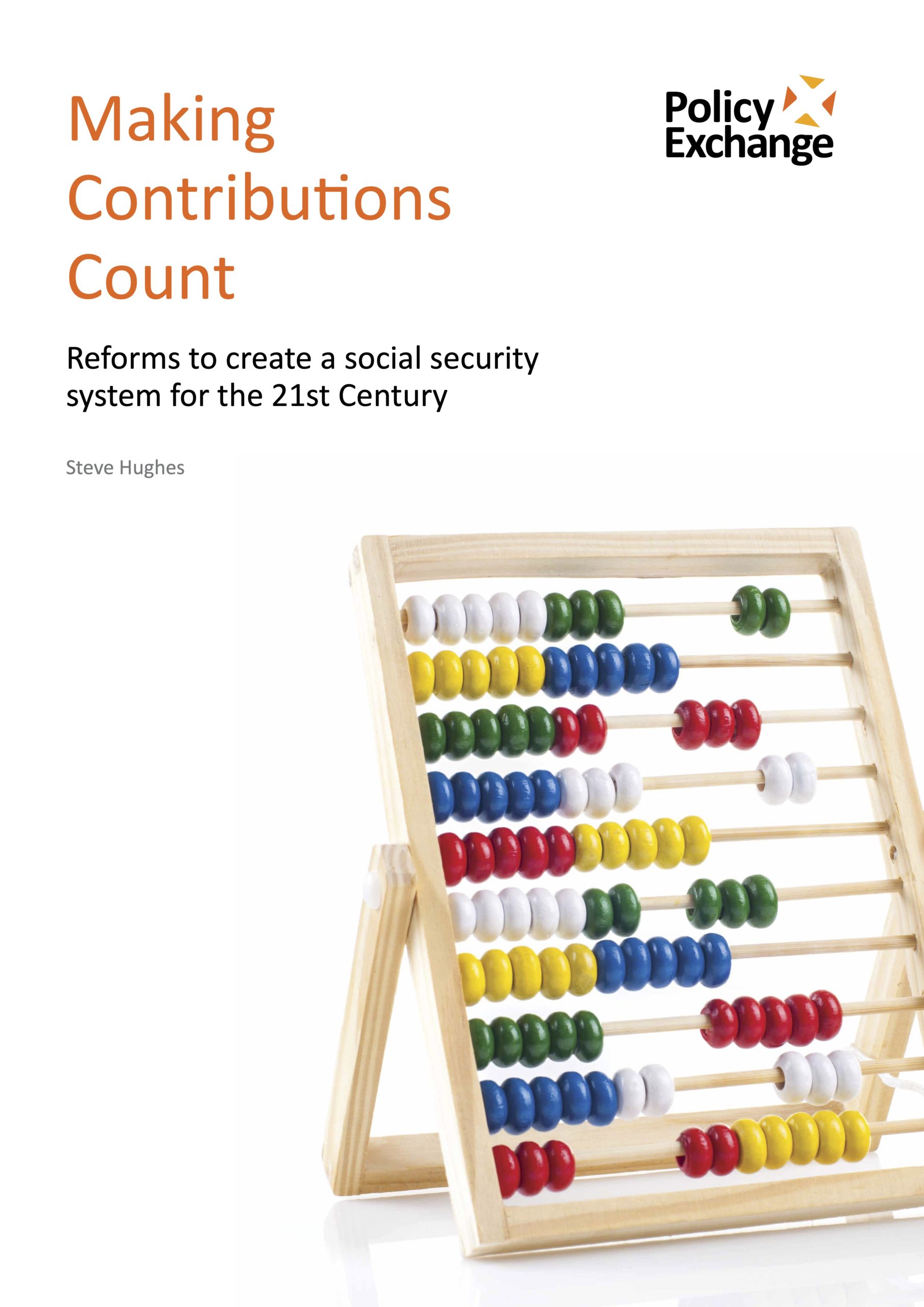Steve Hughes
Head of Economic and Social Policy
Steve Hughes is the Head of Economic and Social Policy. Before joining Policy Exchange, Steve worked at the Bank of England in its Banking Services Directorate, where he conducted research into the circulation of banknotes, and helped manage the regulatory system that governs cash distribution in the UK. Prior to this, Steve worked at the British Chambers of Commerce, producing economic indicators and advising on tax, international trade and SME finance policy. He has also worked in Parliament, researching HM Treasury legislation as it passed through the House of Commons. Steve read economics at the University of Nottingham.
Steve Hughes, Policy Exchange's Head of Economics & Social Policy, is quoted in the Daily Mail calling for public sector pay reforms such as abolishing automatic progression, linking pay with performance and capping compensation.
This new report examines how people aged under 25 interact with the welfare system, arguing that the higher risk of young people disengaging from the welfare system and their different attitudes to work means that the Government should intensify employment support for people aged 25 and under.
This essay collection collates some of the most thought provoking assessments of Thomas Piketty’s book Capital in the Twenty-First Century, and publishes some new ones for the first time.
The Welfare Manifesto shows how to make the welfare system fit for the 21st Century. The report sets out principles to be make the system simpler, more effective, fairer, more affordable, and reward contribution.
Bonus ISAs proposes a new scheme to give people more flexibility to build up their tax-free savings pots during the course of a lifetime. The "Bonus ISA" would be offered to anybody who is unable to use their full annual tax-free savings allowance (currently set at £15,000). People would be given the power to roll over any unused portions of their existing ISA allowances into their Bonus ISA account.
Making Contributions Count proposes a new unemployment insurance scheme which will put personal contribution at the heart of the welfare system. The scheme would see people who have worked hard and paid their taxes able to draw from a contributory pot to provide a greater level of out of work support if they need it. Upon retirement, the contributions would be released as part of an individual's pension package, which could see people who worked all their lives receiving in excess of £10,000.
Ahead of next weeks Budget, Steve Hughes, Policy Exchange's Head of Economics & Social Policy, discusses savings policy.
Steve Hughes, Policy Exchange's Head of Economics & Social Policy, discusses the latest release of the UK labour market statistics.
Policy Exchange takes a more detailed look at the Summer Budget, including: the impact of the Living Wage; the reduced pace of departmental spending cuts; the fundamental shift in welfare policy; what awaits Housing Associations; and the impact of changes to energy levies.
Policy Exchange's Steve Hughes and Jonathan Dupont analyse today's Summer Budget, including a look at how the National Living Wage will work, further detail on the Conservatives' fiscal rules, and the impact on social housing.
Steve Hughes, Policy Exchange's Head of Economics & Social Policy, argues that the Coalition’s record on job creation across the country should be celebrated but there is still much work to do to improve productivity and get even more people into work.
Policy Exchange responds to announcements in Budget 2015 in the areas of government spending, capital ownership, housing and energy policy.
Steve Hughes, Policy Exchange's Head of Economics & Social Policy, sets out five policies from our recent Economics Manifesto that would help turn Britain into a capital-owning democracy. The policies include a mass distribution of RBS and Lloyds' shares, a new type of 'Bonus' ISA and a new generation of premium bonds.
Policy Exchange's Head of Economic and Social Policy, Steve Hughes, highlights some of the key recommendations made in our recently published Welfare Manifesto. The report proposed greater personalisation of help for job seekers, making the Winter Fuel Payment opt-in and the creation of a compulsory collective insurance scheme as part of plans to make a fairer, more affordable welfare system.
Steve Hughes, Policy Exchange's Head of Economic & Social Policy, sets out how a Policy Exchange proposal to create 'Bonus ISAs' can help give savers more flexibility. By allowing unused portions of an ISA allowance to build up into a Bonus ISA, savers will be able to take advantage of greater tax-free savings capacity in years where they would fill their ISA allowance.
Policy Exchange's Head of Economic and Social Policy, Steve Hughes, outlines the thinking behind our recently published report Making Contributions Count. The report calls for the next government to legislate for a new welfare system that establishes a clear link between contribution and benefits, and argues that only then will public trust in the benefits system be restored.
Steve Hughes, Deputy Head of Policy Exchange's Economic and Social Policy Unit, considers the potentially far-reaching consequences of a second Argentinian sovereign debt default. Steve argues that, as a result of the dispute, the precedent of enforcing equal treatment of creditors as interpreted by the US legal system may now have been set, which may also mean that the IMF has to take a different approach to debt restructuring in the future.
Steve Hughes, Policy Exchange's Deputy Head of Economic & Social Policy, examines Ed Balls's announcement that he would freeze and then cut Business Rates, rather than lowering Corporation Tax. Steve argues that such a policy will not make UK business as a whole more competitive than a Corporation Tax cut would - instead it will create winners in the companies with lots of commercial property and losers in those that do not.
Steve Hughes, Policy Exchange's Deputy Head of Economic & Social Policy, responds to a recent report showing that the middle class has weathered the fall-out from the financial crisis relatively well. Steve argues that the report's findings and recommendations show how difficult it is to properly define parts of the income distribution for specific interventions. Instead we would be better off cutting National Employers insurance in order to stimulate hiring and wage recovery.


